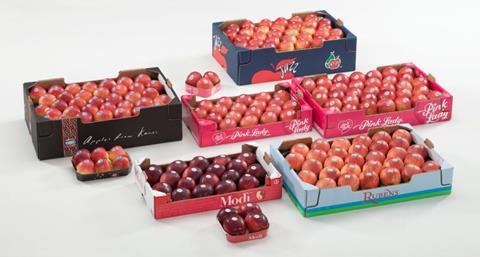
The head of Italy’s largest apple export company says there is likely to be a further sales increase in Mediterranean and North African markets this season following impressive growth during the last campaign.
Gerhard Dichgans, director of South Tyrol-based consortium Vog, also said he was confident that this season’s European apple campaign would be a far more positive one than last year’s, which saw prices for fall too close to production costs and, in Italy’s case, a harvest of reportedly excellent quality apples sold off in many cases at a loss.
The 2015 crop is likely to fare better, said Dichgans: “I am confident that the new harvest is going to begin in a climate of restored confidence,” he explained, “first and foremost because Poland will have plenty of options for disposing of its record harvest.”
Only organic apples and club varieties were reported to have shown any kind of resistance to the dip in prices, something which bodes well for a company that has invested not only in organic production but also in trademarked, licensed varieties including Pink Lady and Jazz.
This year will see the first commercial volumes of South Tyrolean Envy be made available to the market, supplied by Vog and its competitor VI.P.
Brussels recently confirmed that EU subsidies would be available to producers affected by the Russian blockade, with Poland the biggest beneficiary. This will allow several hundred thousand tonnes more fruit to be distributed to charities.
“The apple processing industry needs large quantities for juice production, and is prepared to pay higher prices than those of last autumn,” Dichgans noted. “Moreover, Polish exporters have shown themselves capable of finding new markets for their variety assortment.”
Slight decrease
Latest forecasts suggest the EU will produce around 11.9m tonnes of apples, 5 per cent less than in 2014. Poland, the largest producer, is expected to equal last year’s record harvest with 3.75m tonnes.
For Vog, the major question mark this season is whether the trade is about to witness a re-run of 2014, especially when considering that the Russian government continues to ban fruit imports from the EU.
But for Dichgans, as sales of the new harvest start, plenty of positive factors are coming into play: the market has been “cleaned” of old-season stock; imports from the Southern Hemisphere have been “small” and prices high; and apple consumption has risen strongly, encouraged by low prices at retail and wholesale.
“Last but not least,” Dichgans commented, “the euro/dollar exchange rate is favouring exports. Last season, the EU-28 exported about 1.45m tonnes of apples, an increase of 17 per cent compared to the previous year. A higher demand came from the Mediterranean and North African markets, and this upward trend may well continue during the coming months.”
For the Vog group’s 16 cooperatives, the 2015 harvest is looking good, with a volume estimated at -12 per cent compared to the bumper harvest of 2014.
Their Royal Gala volumes are expected to be smaller than last year. Estimates for Fuji, Golden Delicious and Red Delicious also indicate slight falls (from 8 per cent to 13 per cent). There will be sharp reductions for Granny Smith and Braeburn, both of which enjoyed record harvests last autumn.
Apart from the six main varieties, Vog’s Pink Lady crop is forecast lower, while volumes of other trademarked apples Jazz, Modì and Kanzi should equal those of last year.
“The autumn harvest season will also see plenty of advertising and promotional projects to support the Marlene brand, which turns 20 this autumn,” Dichgans concluded. “Although we are not underestimating the many external factors which are affecting our markets more and more, our consortium is looking ahead to the new season with regained confidence.”



